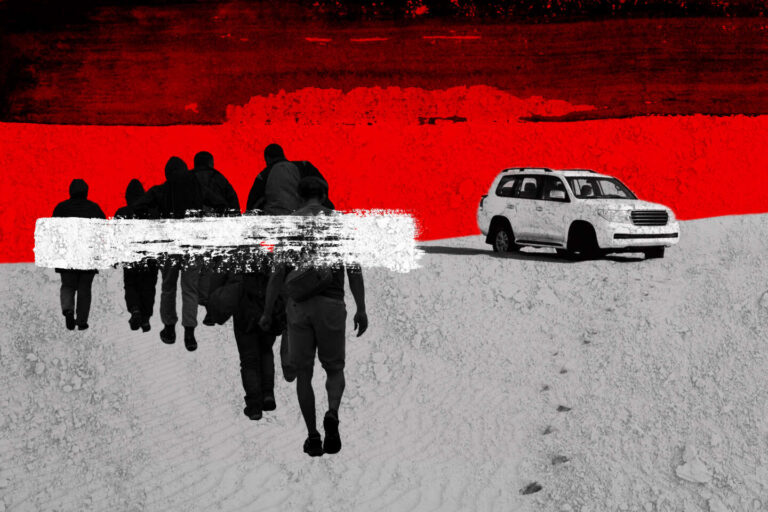In the Moroccan capital of Rabat, a young Guinean man, Lamine, was arrested by police six times in 2023 and then ruthlessly deported to the other side of the country. (Those mentioned by their first names in this investigation only requested anonymity.) In Mauritania, fellow Guineans Bella and Idiatou were arrested, then imprisoned, then abandoned in the middle of the desert. Their crime? For trying to reach Spain by sea. In Tunisia, François, from Cameroon, found his way out the way he could after being abandoned by security forces in the mountains near the Algerian border. It was the third time he had been deported in the space of a few months.
These three stories are remarkably similar, but they took place in three different North African countries. They share a common feature: the final stages of the main migration routes to Europe: the Central Mediterranean route from the coast of Tunisia to the Italian island of Lampedusa, the Western Mediterranean route from North Africa to Spain, and the Atlantic route from the coast of Senegal and Western Sahara to the Canary Islands.
Important resources mobilised by the EU
Morocco, Tunisia and Mauritania are therefore of great interest to the European Union as it tackles irregular migration. With public opinion tense, member states divided and the rise of the far-right at the centre of the political agenda in many countries, Europe is mobilising substantial resources to prevent sub-Saharan migrants from crossing by sea. There is a risk that aid provided to North African governments will be used for illegal activities and repeated human rights violations.
Since 2015, the three countries have received more than 400 million euros for border controls solely through the EU Emergency Trust Fund (EUTF), which the EU launched at the Valletta Migration Summit in Malta. In addition, some member states also receive aid directly or through other programmes.
In July 2023, the EU signed a new agreement with Tunisia that includes €105 million in aid to combat irregular migration. Just before that, on June 19, French Interior Minister Gérard Darmanin had pledged more than €25 million in aid to Tunisia to strengthen migration management. More recently, on February 8, 2024, in Nouakchott, European Commission President Ursula von der Leyen announced a €210 million aid package for Mauritania, part of which will be dedicated to “migration management.”
You still have 88.21% of this article to read. The rest is available to subscribers only.


